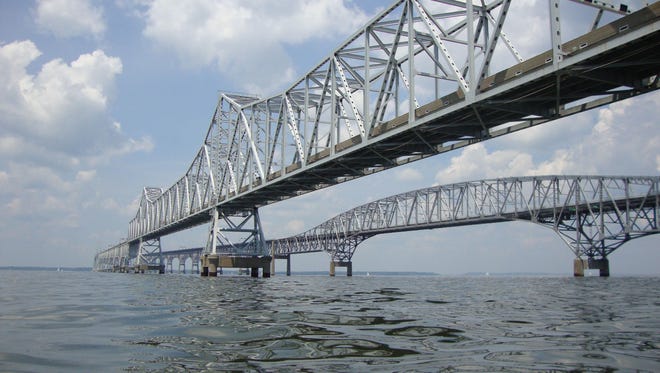Letter: Factory fishing operations could empty Chesapeake of menhaden

Picture a nice December morning on the Chesapeake Bay: Rockfish, herons and even an eagle here and there are beginning their relentless search for food.
A Crisfield charter boat captain is greeting his sleepy customers who are eager for a good day fishing. As the boat leaves the sound into the main bay, the captain slows down. He is looking for the the noisy gulls who signal the rockfish are feeding on a school of menhaden.
He and the rockfish are looking for the same thing. But the menhaden are not there, the gulls are not there. It is very quiet.
About 15 miles or so south of our charter boat, just across the Virginia line in Reedville, Virginia, another group of menhaden fishermen are starting their day. These fishermen, however, are equipped with five or six factory ships, two 40-foot chase boats per ship with purse seine nets that capture an entire school of menhaden, and spotter planes.
These wolf packs are capable of catching every school of adult menhaden that swims into the bay. They are allowed by the regulatory agency to capture and remove from the bay's food chain thousands of schools of adult menhaden, year in and year out.
This is the reason it is so quiet on our bay this December morning.
More opinion:The Chesapeake Bay's health relies on the menhaden
There is another group of people involved in this story. They are the staff and delegates to the Atlantic States Marine Fishery Commission who, unfortunately, continue to base all their decisions on an Atlantic Coast assessment of menhaden instead of what the impact is on the Maryland portion of the bay when such a huge volume of menhaden are caught in Virginia.
No one is counting to see how many schools make it to Maryland. I have to wonder if anything would change if some of the bureaucrats and regulators had been on the charter boats and joined the fish and the birds looking in vain for the schools of menhaden on that quiet morning on the bay.
Google "caught menhaden," "CBF menhaden facts" or "Dr. Brian Watts, William and Mary, osprey research."
Tom Lilly of Tyaskin writes on behalf of Friends of the Wicomico River.
More:Oyster restoration goal slashed in Maryland